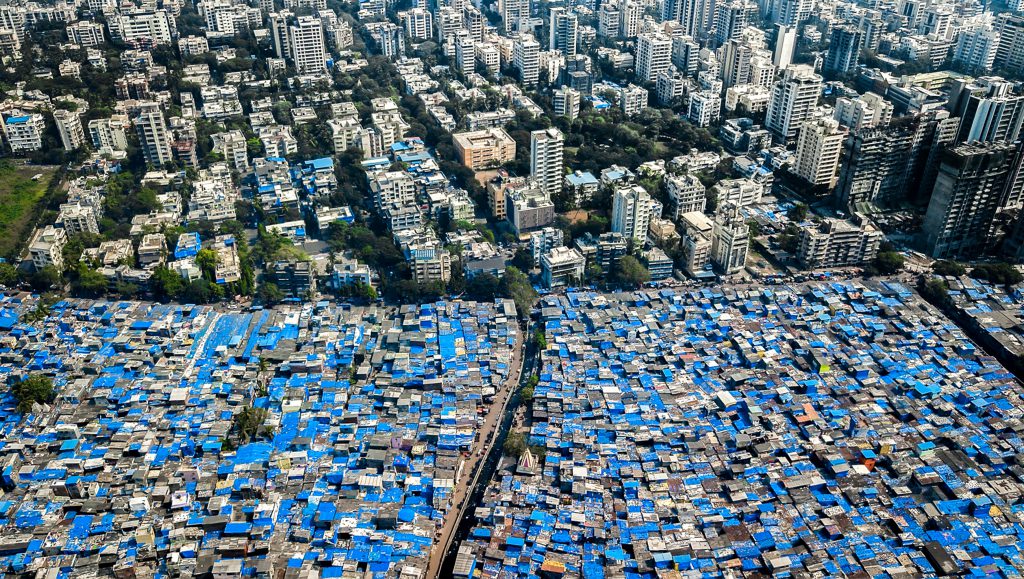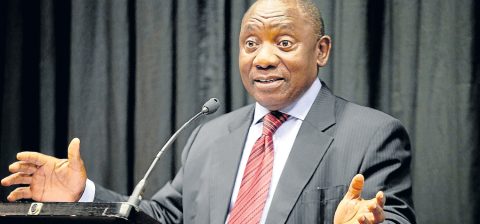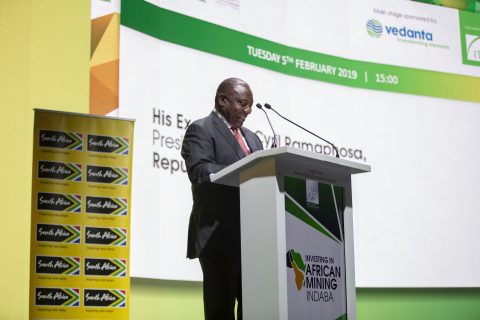Empowerment Government & Politics
The Debate Rages On
Land is every bit the hot button issue it was billed as before the election, and the final election results show that it was central to the eventual outcome and remains a pressing issue.
“Our Land And Jobs Now!” was one of the Economic Freedom Fighters’ (EFF) most powerful election slogans. The EFF’s election manifesto says “landlessness and joblessness among black South Africans are at crisis levels, posing the biggest challenges that confront South African society today”. It further states that “80 per cent of the population continues to occupy less than 10 per cent of the country’s land”.
According to the EFF, of the 122 million hectares of available land in the country, 67 per cent is white-owned agricultural land, 14 per cent is state-owned and 5 per cent Indian-owned. That leaves less than 14 per cent of the country’s land for black Africans and coloureds, who make up 88 per cent of the population.
The EFF advocates that available land should be placed under the custodianship of the state, which would administer and redistribute it equitably to all South Africans for residential and productive use.
EFF national chairperson, Advocate Dali Mpofu, says the issue of land was “key” to the party getting over 1.8 million votes and nearly 10.8 per cent of the national vote. He says it was also a hug factor in galvanising the Afrikaans community to rally behind the Freedom Front Plus (FF Plus) and ensure the party’s 414 864 votes (2.38 per cent of the national vote) and six more seats in the National Assembly.
Right-Wing Shift
“The most decisive moment came at the African National Congress’ (ANC) Conference in Nasrec when they supported the EFF’s position on the expropriation of land without compensation, and when the ANC supported us in parliament by agreeing that Section 25 of the Constitution be amended to make expropriation of land without compensation more explicit. That’s when the right-wing shift happened.
“The FF Plus phenomenon is actually also a good thing. It shows the reality of their apartheid-state nostalgia and that black people being equal to white people is something they can’t stomach,” Mpofu says.
He adds that while the FF Plus’ “Slaan Terug” campaign saw it consolidate its conservative support base, it was also a major beneficiary of white support deserting the Democratic Alliance (DA) en masse. “The right-wing nationalist elements of the DA could not stomach the possibility of land reform and of a black party leader. The fear around the land issue was what shifted people from the DA to the FF Plus,” Mpofu says.
He adds that the EFF’s strong election showing was a “huge” boost to the party and showed that its prioritisation of the land issue was well founded.
While the ANC’s support for the amendment of Section 25 of the Constitution was seen as a clear attempt to stem some of the populist red tide of the EFF, the ANC tiptoed around the land issue during its election campaign. President Cyril Ramaphosa almost single-handedly dragged the ANC over the line, out of the quagmire of a campaign mired in state capture and corruption allegations, although it dipped below 60 per cent nationally for the first time in six general elections.
Ramaphosa was every bit the diplomat with his “presidential” take on the land issue just ahead of the election.
“The one thing that I’ve always said, that will never be allowed is to have land grabs. We are going to solve this problem by working together and finding solutions that are fit for South Africa. As South Africans, we have been able to find solutions for the most difficult and almost intractable problems,” Ramaphosa said in Pretoria in the week before the election.
FF Plus chairperson Anton Alberts made no bones of the fact that the party’s increased support was directly due to its stance on land reform.
The DA’s message of “One South Africa For All” clearly wasn’t particularly palatable for many of its conservative supporters, and the FF Plus was only too happy to provide an alternative hardline home.
DA national spokesperson Solly Malatsi says: “We definitely lost votes to the FF Plus and we need to understand why some of our supporters jumped ship. While the land issue is important given the historical injustices of the country, it was not one of our five core campaign issues and we did not feel it was a make or break issue for voters”.
No party was more militantly focused on land than Black First Land First (BLF), whose slogan “Land or Death” was deemed as hate speech prior to the election and whose fiery rhetoric didn’t resonate with voters.
Ernst Roets, spokesperson for minority rights group Afriforum, says it was “very interesting” that the ANC did not campaign at all around the land issue ahead of the elections. “They know that it (land) is not as big a deal for their supporters as it’s made out to be and that issues such as unemployment, education and rooting out corruption are far more important. We are concerned, however, that over 70 per cent of parliament is now made up of parties in favour of the expropriation of land without compensation. What will happen now after the election is what we are concerned about,” says Roets.
What Does The Future Hold?
Just how aggressively or sensitively the new ANC government deals with the issue of the expropriation of land without compensation and how this will work is now the big question.
For the moment, Ramaphosa remains diplomatic.
“We have great minds in our nation that are going to be put to work to make sure we find solutions. Much as we live in a country where there is private ownership, we also have a hybrid type of system. There is private ownership and communal ownership. The land being claimed is for communal ownership and the Constitution recognises that,” Ramaphosa said recently.
“A constitutional process is now underway. We are law-abiding, and the rule of law must apply. This matter is going to be handled with the seriousness, and the delicacy it requires, “ he added.
EFF leader Julius Malema is far less diplomatic than Ramaphosa in calling for the land issue to be decisively and quickly addressed, or for the country to face the consequences. “Let black people own the land too, and we will see how much crime and service delivery protests will reduce,” Malema told Turkish television station TRT World just before the election.
“Employment is not in the hands of white people, it’s in the land. This inequality, which is growing and widening by the day, and which is racially based as blacks become poorer and whites richer, is not sustainable, and it will lead to loss of life.
“We are serious about the issue of land and we are saying to government please put the systems in place and expedite it, otherwise it will become ugly and we do not want it to become ugly,” Malema said.






 Sign-up and receive the Business Media MAGS newsletter OR SA Mining newsletter straight to your inbox.
Sign-up and receive the Business Media MAGS newsletter OR SA Mining newsletter straight to your inbox.